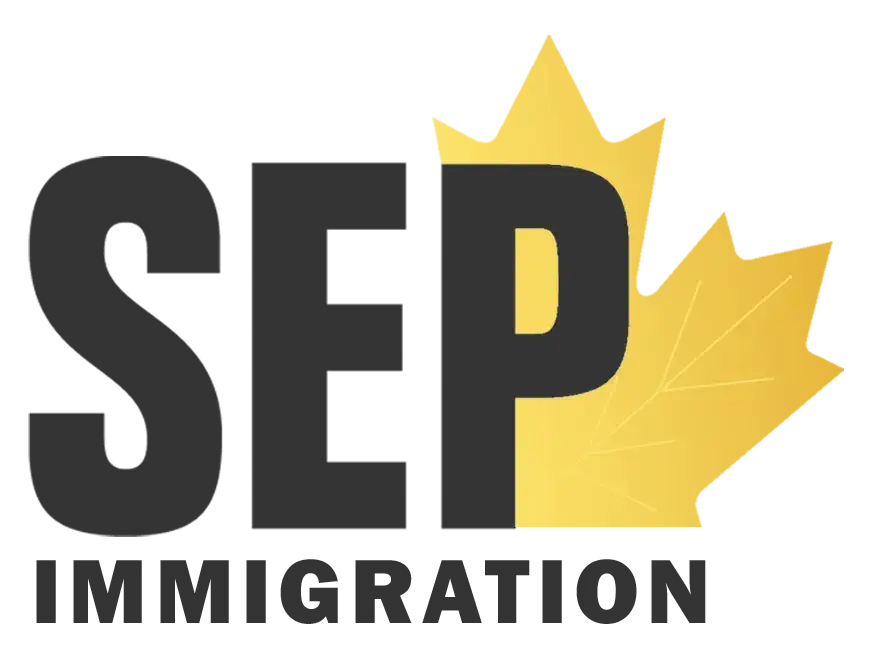Here’s what you can do. You may be able to apply through Express Entry: Human Capital Priorities Stream which helps Ontario search for eligible candidates who have submitted an Express Entry profile and who meet the language, work experience, and many other requirements.
A job offer is not needed for this stream, but you must have an active Express Entry profile and meet requirements set by Ontario such as having work experience in targeted occupations or sectors to be considered and invited to apply in this stream.
Table of Contents
ToggleHow to Immigrate to Canada Without a Job Offer in 2024
If you are looking to immigrate to Canada but cannot secure a job offer, the Ontario Human Capital Priorities Stream may be a suitable option. This stream allows individuals with skills, qualifications, and experience to apply for permanent residency without needing a job offer in advance.
Benefits of the Human Capital Priorities Stream
One of the key benefits of the Human Capital Priorities Stream is that it provides a pathway for individuals who may not have direct job offers but possess valuable skills and qualifications. It helps to bridge the gap for highly skilled workers to be able to contribute to the Canadian economy without the need to find employment first. This stream is particularly useful for those in high demand fields such as healthcare, engineering, information technology and education where Ontario has identified labor shortages.
Additionally, the Human Capital Priorities Stream is directly aligned with the federal Express Entry system, meaning that candidates who meet Ontario’s criteria are selected and invited to apply, increasing their chances of becoming permanent residents. The opportunity is great for those who have not yet developed networks in Canada and have good educational background and work experience.
The Ontario Immigrant Nominee Program (OINP) regularly updates its streams to align with labor market needs. For instance, on July 25, 2024, Ontario issued targeted notifications of interest to potential candidates in the Human Capital Priorities stream, specifically for NOC 31102 – General practitioners and family physicians. Staying informed about such updates can enhance your chances of receiving a nomination.
Why Immigrants Have a Hard Time Getting a Job in Canada?
Many immigrants face challenges when it comes to securing jobs in Canada. These difficulties can stem from a variety of reasons, such as a lack of Canadian work experience, differences in certifications and qualifications, language barriers, and limited professional networks within the country. Understanding these challenges can help immigrants better prepare and overcome obstacles in their job search journey.
Lack of Canadian Work Experience
Canadian employers often prefer candidates who have prior experience working in Canada. The lack of Canadian work experience is a significant barrier for newcomers, as it may make employers hesitant to hire someone unfamiliar with the local work culture. To overcome this, immigrants can consider volunteering, internships, or contract roles to gain some Canadian work experience and build their resumes.
Differences in Certifications and Qualifications
Another challenge is that foreign credentials and certifications may not always be recognized in Canada. Certain professions, such as engineering, healthcare, and teaching, require individuals to undergo an assessment or obtain additional licensing before they are eligible to work. It is essential to research your field and understand the requirements to have your credentials recognized. In some cases, bridging programs or professional development courses can help immigrants meet Canadian standards and become more competitive in the job market.
If you obtained your education outside Canada, you must get an Educational Credential Assessment (ECA) to verify that your foreign degrees, diplomas, or certificates are equivalent to Canadian standards. An ECA is essential for earning points for education in the Express Entry system.
Language Barriers
Language proficiency is another common challenge for immigrants. Employers are often looking for candidates who are fluent in English or French, depending on the region. Improving language skills through language courses and practicing communication in professional settings can help immigrants feel more confident and competent during job interviews and in the workplace.
The Human Capital Priorities Stream requires a minimum Canadian Language Benchmark (CLB) level of 7 in English or French. Achieving higher language test scores can improve your CRS score and enhance your competitiveness in the Express Entry pool.
Limited Professional Networks
Building a professional network is crucial for finding job opportunities in Canada. Many job openings are not advertised publicly and are filled through referrals. Immigrants who are new to the country may have limited connections, which can make it challenging to learn about job opportunities. Attending industry events, joining professional associations, and participating in community activities are great ways to expand your network and increase your chances of finding employment.
Ontario Human Capital Priorities Stream
The Human Capital Priorities Stream has been one of the most active Ontario PNP streams since the beginning of 2021. To be eligible you will need to:
- Have an active Express Entry profile;
- Be eligible for one of the Federal Skilled Worker Program (FSWP) or Canadian Experience Class (CEC);
- Meet the work experience requirements;
- Have a Canadian Bachelor’s, Master’s, or Ph.D. degree or equivalent foreign credentials;
- Language proficiency (minimum CLB 7);
- Want to reside in Ontario;
- Show proof of funds.
Proof of funds is crucial for demonstrating that you have sufficient funds to support yourself and your family members upon arrival in Canada. The required amount varies based on family size and is updated annually. Providing accurate proof of funds is a critical component of your application.
This stream is ideal for individuals who want to establish themselves in Ontario without the need for a job offer. It provides a clear pathway for highly skilled individuals to contribute to the economy and enjoy a high quality of life in Ontario. The eligibility requirements ensure that candidates have the necessary skills, education, and language abilities to succeed in Canada.
Family Sponsorship
Family Sponsorship is another pathway that can help individuals become permanent residents of Canada. If you have a family member who is already a Canadian citizen or permanent resident, they may be able to sponsor your immigration application, helping you bypass the need for a job offer.
Who Can Be Sponsored?
Under the Family Sponsorship program, Canadian citizens and permanent residents can sponsor their spouses, common-law partners, dependent children, parents, and grandparents to become permanent residents of Canada. This program is designed to help reunite families and allow them to build their lives together in Canada.
Benefits of Family Sponsorship
The Family Sponsorship program offers several benefits, including faster processing times and the ability for sponsored individuals to live, work, or study in Canada. Unlike economic immigration programs, family sponsorship does not require the sponsored person to have specific work experience or meet strict language proficiency requirements. This makes it an accessible option for those who have close family ties in Canada.
How to Find a Job in Canada
Finding a job in Canada is often an essential step for immigrants. Here are some steps that may help you secure a job.
Documents to Find a Job Offer in Canada
To apply for jobs in Canada, you will need to have several essential documents prepared, such as:
- A valid resume or CV;
- Cover letter tailored to each job;
- Proof of previous work experience and educational qualifications;
- Language proficiency test results (if applicable);
- Credentials assessment (depending on the job requirement).
Having these documents prepared in advance will make the job application process smoother and help you present yourself as a qualified candidate.
Research the Canadian Job Market
Researching the Canadian job market is crucial before applying for positions. Understanding the specific demands of the sectors you are interested in, as well as knowing the labor market trends, will give you an advantage in your job search.
Start by identifying the industries that are in high demand for workers. Some of the most in-demand sectors in Canada include healthcare, information technology, engineering, skilled trades, and finance. Understanding the specific requirements and expectations of employers in these industries can help you tailor your application materials accordingly.
Staying informed about the latest Ontario Immigrant Nominee Program (OINP) updates, including targeted notifications of interest for specific occupations, can also help you understand which sectors have a higher demand for skilled workers.
Prepare Your Resume and Cover Letter
Ensure that your resume is updated according to Canadian standards. A well-structured resume and a strong cover letter tailored to the position you are applying for can make all the difference in securing an interview.
In Canada, resumes typically include a summary of your professional experience, education, skills, and relevant certifications. It is important to keep your resume concise and relevant, highlighting your most significant achievements. A strong cover letter should be customized for each job application, demonstrating your understanding of the company and explaining why you are the right fit for the position.
Apply to Jobs Online
Online job platforms such as LinkedIn, Indeed, Glassdoor, and Job Bank are great places to start your job hunt. Be sure to create a profile on these websites, search for positions relevant to your experience, and actively apply.
Networking through online platforms can also be beneficial. Join groups related to your industry, participate in discussions, and connect with professionals in your field. This will increase your visibility and may lead to job opportunities.
Explore Recruitment Agencies
You may also want to connect with recruitment agencies in Canada. These agencies can provide support in finding positions suited to your skills and experience and may even help you refine your application materials.
Recruitment agencies are particularly helpful if you are looking for temporary or contract work, as they often have access to opportunities that may not be advertised publicly. They can also provide guidance on how to improve your resume and interview skills, increasing your chances of securing a job.
Prepare for Interviews
If you secure an interview, it’s essential to be well-prepared. Learn about the company, practice common interview questions, and make sure you understand Canadian workplace culture to leave a positive impression.
In Canada, interviews often focus on both technical skills and cultural fit. Be prepared to answer behavioral questions that assess how you handle various work situations. Practicing your responses and providing specific examples from your past experience can help you stand out as a strong candidate.
Build Your Professional Network
Networking is a vital part of finding a job in Canada. Attend industry events, workshops, and seminars to meet other professionals in your field. Many cities in Canada also have newcomer organizations that provide networking opportunities and job search support. Building relationships within your industry can lead to job opportunities that are not advertised publicly and can help you integrate into the Canadian job market more effectively.
Building a professional network is essential, as many job openings are not advertised publicly and are filled through referrals. Engage with industry associations, attend job fairs, and utilize online platforms like LinkedIn to connect with professionals in your field. Tailoring your resume to Canadian standards and preparing for behavioral interviews can also enhance your job search efforts.
Why choose us?
We have been helping many applicants to become permanent residents for years and we have a high success rate. Our clients from almost 20 different countries have experienced this with us and you can be the next successful one. We know how to prepare documents and how to make your immigration process smooth and easy for you. Contact us HERE to start the process today!
If you are not a Canadian Permanent Resident yet and you are not sure what the best way for you to immigrate to Canada is, please fill out our assessment form HERE and we will get back to you with your possible options.









